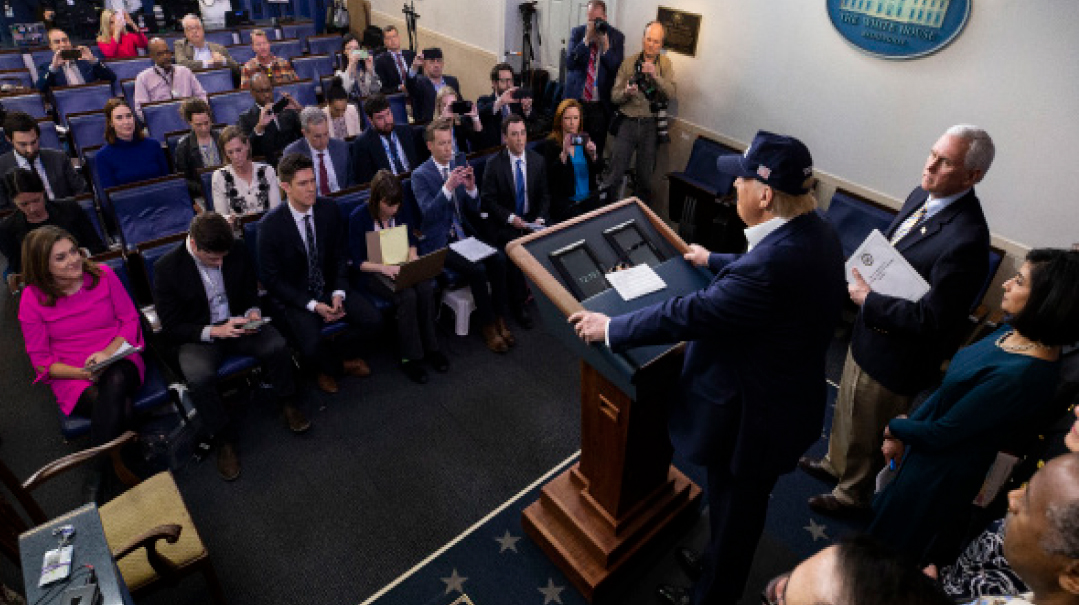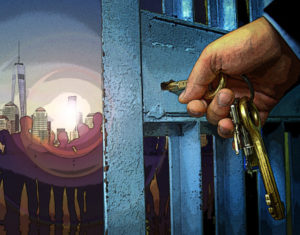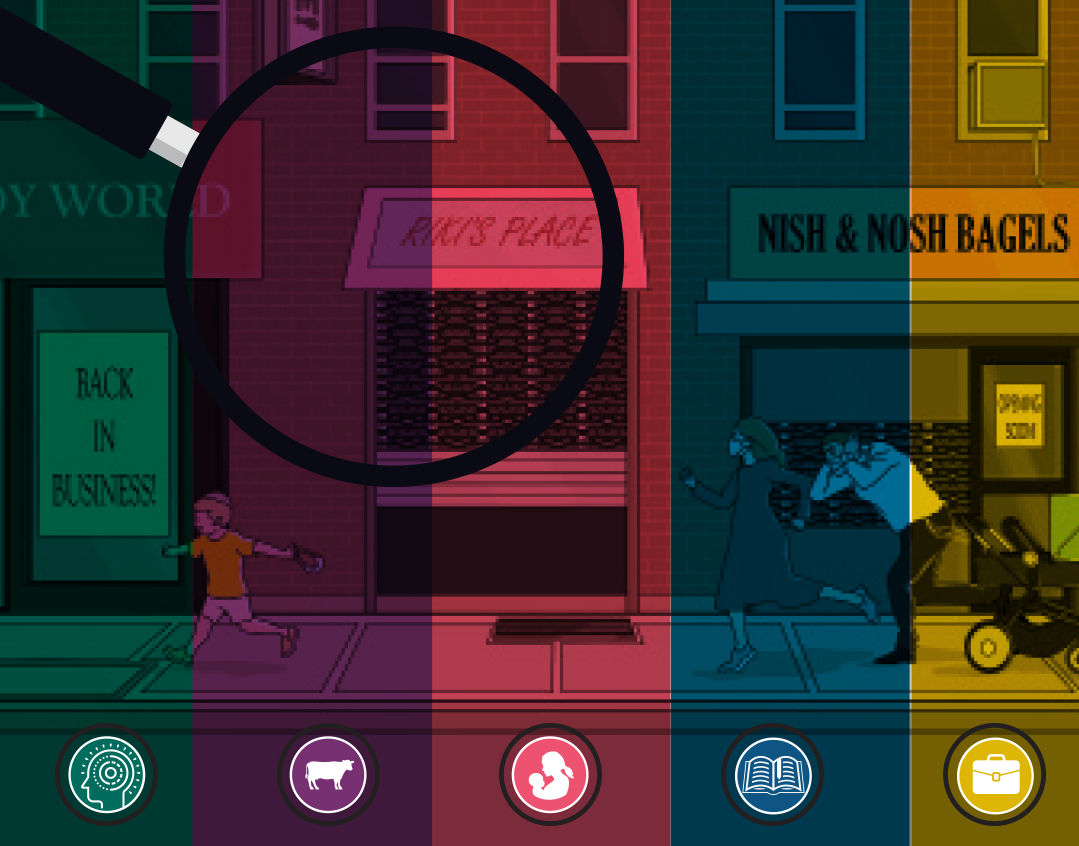For Donald Trump, a Test of Leadership

The November presidential election will be defined by Trump's leadership during this time of crisis

The coronavirus is spreading through the United States steadily, putting Donald Trump to the greatest test of his political life.
Before Trump’s election, doomsday prophets worried what an unhinged man in the Oval Office might do. Would he press the nuclear button in a fit of rage? Start meaningless wars?
But Trump was and remains a businessman whose first commitment is the stability of the American economy. He would rather focus on cutting taxes and building infrastructure than sending American troops into battle.
The Trump presidency has not been stable. There have been scandals, dramatic dismissals, Twitter wars, and an impeachment attempt. But none of these equal an international crisis akin to coronavirus.
Trump’s grades for the first few weeks of the crisis haven’t been good. It took him too long to appreciate the gravity of the situation, and even when he understood that coronavirus is not just another seasonal flu, he continued sending conflicting messages. On the one hand he asked the population to exercise caution by keeping an adequate distance in meetings and other venues. But at the same time, he continued shaking hands with world leaders. “That’s what we do in our line of work,” Mike Pence explained.
As well, it took the administration too long to prepare for mass testing, a critical step to stopping the virus. Only in mid-March were testing sites of any significant capacity set up across the country. The administration has also not — as of this writing — taken steps to ban public gatherings, as in Israel. Lastly, the sudden announcement of the travel ban from Europe, while perhaps prudent, created chaos at the airports.
Above all, there’s a stark contrast between the president’s reassurance that “we’re better prepared than any country in the world,” and the situation on the ground. In the United States, life proceeds a bit too normally, even as the broadcast networks announce lockdowns of the population in Spain and Italy, countries that are two weeks ahead of America in the infection “curve.”
Impact on 2020
Trump must now realize that the November presidential election will be defined by his leadership during this time of crisis. His Democratic opponent, whether it’s Joe Biden or Bernie Sanders, will surely make his leadership a top campaign issue.
Will this be his “Katrina moment” — when President George W. Bush failed to adequately respond to a hurricane that devastated New Orleans — or will Trump take charge of the situation and steer us responsibly through the abyss?
One thing is for sure: If the virus is not stopped, the 2020 presidential campaign will be different than any we’ve seen before. It will go digital. Candidates will make speeches on Twitter and Facebook. There will be no rallies. Instead, it will all come down to viral videos and catchy slogans.
That’s bad news for the incumbent. Trump is at his best at mass rallies, when he can bellow and bray before his base. That’s how he energizes his supporters.
Joe Biden, on the other hand, isn’t as accomplished on the stump. He doesn’t possess Trump’s charisma or focus. He can’t grab a crowd’s attention. His rallies are, in a word, boring.
So if you give the reins to the political consultants and ad makers, the race becomes much more about the creativity of each candidate’s team than about the candidates themselves. In that scenario, Trump won’t be able to put his clear rhetorical superiority over Biden to effect.
Bad for Bernie
It’s a blow to Sanders, too. While Biden appeals to the Democratic establishment, Sanders is trying to reach people who haven’t necessarily voted before, such as immigrants and young people. To accomplish this, he’s deploying an army of volunteers on street corners and through door-to-door persuasion efforts. In an era of social distancing, you can target supporters based on their previous affiliation, but it’s harder to reach people if they won’t open the door.
And there’s another reason why it’s bad for Sanders. If the coronavirus leads to a significant alteration in the format of the Democratic convention in Milwaukee, Sanders will be at a distinct disadvantage. In 2016, Sanders brought thousands of supporters to rock the boat at the convention and send a clear message that Hilary Clinton would have to work to earn the votes of the progressive base. If Sanders succeeds in creating a contested convention, he won’t have his loud supporters — who already have a NeverBiden hashtag trending on Twitter — to aid him.
In any case, to the dismay of Sanders’s supporters, Biden is fast opening an insurmountable delegate lead over the democratic-socialist senator. It’s not me who’s saying this, it’s Sanders himself. In a press conference last Wednesday after the March 10th primary results, he acknowledged that millions of people prefer Biden, the former vice president. It seems Sanders now understands that he isn’t going to win this nomination contest either. He can only hope that Biden will adopt elements of his platform, giving him a dignified way to bow out.
The former vice president can congratulate himself on the results. He managed to defeat Sanders even in more liberal states such as Michigan (which relaunched Sanders’s campaign in 2016 after a rough Super Tuesday) and ultra-liberal Washington. Sanders’s only victory was in North Dakota, where only 13,000 people turned out to vote. They split 7,500 to Sanders and 5,700 to Biden.
(Originally featured in Mishpacha, Issue 803)
Oops! We could not locate your form.













